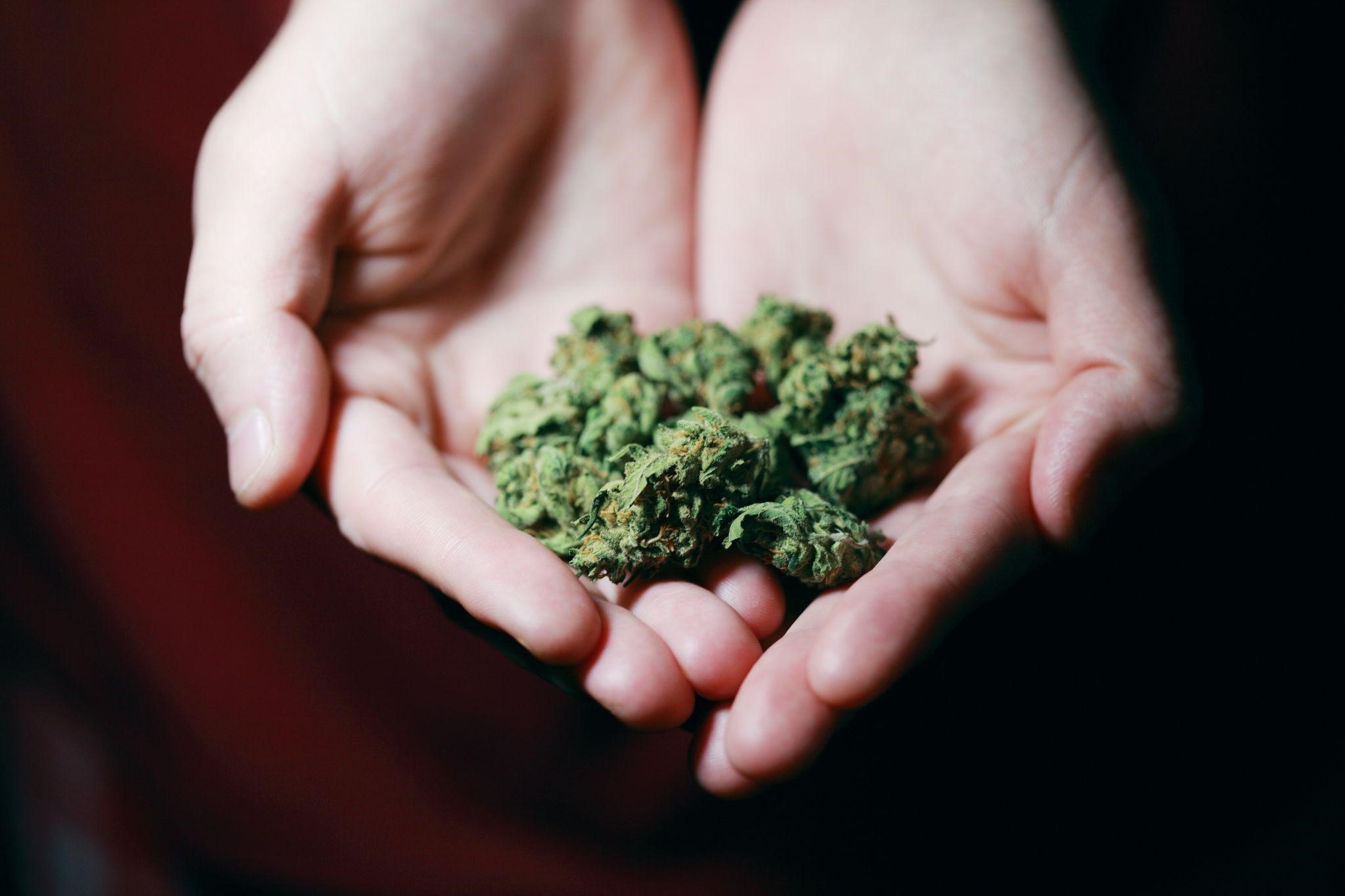THCA: The Hidden Potential of Non-Psychoactive Cannabis
Cannabis has a rich history of human use. It is a plant revered for its medicinal and recreational potential. In the past, most people only associated cannabis with one effect: Getting High!
Scientists have been studying this plant for centuries. Only recently have its potential uses begun to emerge. The plant offers numerous benefits.
If you are a cannabis enthusiast, you are likely to hear of THC, the chemical responsible for the euphoric high. You may not be as familiar with its less well-known relative, THCA. Well, many people don’t!
THCA, or tetrahydrocannabinol acid, is a substance that is not psychoactive and is found in raw cannabis plants and flowers. It does not get you high; it is used for its medical value.
Let’s take a look at the hidden potential of THCA so that you can enjoy its untapped potential.
1. THCA Is Non-Psychoactive
When marijuana is exposed to heat, a process called “decarboxylation” occurs. This process changes the acidic cannabinoids in marijuana, such as THCA, into their active forms, like THC.
THCA provides users with a more complete experience compared to other cannabinoids. Unlike other cannabinoids, it doesn’t cause any mind-altering effects. Simply put, when you light and smoke cannabis, a chemical reaction occurs that transforms THCA into THC.
THC is the molecule responsible for the psychoactive effects of cannabis. It means that people can use products containing THCA without worrying about feeling high or impaired afterward.
If you’re looking for medical relief using cannabinoid therapy, you might want to try using low levels of THCA instead of pure THC.
When taken orally, THCA has no psychoactive effects. Chemically, it contains an extra carboxyl ring on the molecule, which blocks it from attaching to the brain’s pleasure centers. This compound is known for its health benefits.
However, if you want that psychoactive experience with THCA, you can simply smoke products like exotic thca flower that gives you the high.
2. THCA Is Anti Inflammatory
THCA has anti-inflammatory properties, which is one of its most notable benefits. It can help treat conditions like inflammation and pain without experiencing any changes in your thinking or cognition.
There is a correlation between inflammation that is chronic and a number of different health issues. According to the findings of several studies, THCA is beneficial in the treatment of regular types of inflammation. But it has yet to be proven 100%.
We need more research to understand the potential of THCA fully. While taking THCA for soothing inflammation, make sure you have taken it in the right amount.
3. THCA Helps To Fight Nausea
Have you ever experienced a situation where you find yourself at the hospital or on a trip, and you suddenly feel highly nauseous? It would help a lot if you had THCA with you. Do you know why? Because THCA can help you with nausea and vomiting.
The next time you feel even slightly nauseated, take THCA. You won’t feel like your head is in the clouds like you do when you take traditional medicines.
4. THCA Can Increase Your Appetite
THCA works with the body’s endocannabinoid system, including hunger. People with diseases or treatments that make them lose their appetite could use THCA to get their hunger back. It helps people regain their appetite. Add THCA to your juice, salad, or smoothie for best results.
THCA isn’t like other appetite-stimulating drugs. You are good to go as long as you are taking it within the limit.
5. THCA Can Aid Alzhimer’s Disease
Recent research has shown that THCA has neuroprotective properties, which might be helpful in the treatment of neurodegenerative illnesses. It can thus contribute to the treatment of Alzheimer’s disease.
Alzheimer’s disease is partly caused by unbound oxygen molecules called free radicals. The qualities of THCA allow it to be effective in the fight against free radicals in brain cells.
THCA can cross the blood-brain barrier and exert its effects on the brain and nervous system. Thus, it prevents the death of brain cells.
6. THCA Expands The Horizon of Opportunities
THCA Because it doesn’t have any mind-altering effects. And it has many potential health benefits. It is becoming increasingly clear that extracting large amounts of this substance from plants inside or outside could be commercially and medically valuable.
While it’s uncertain how things will unfold due to legal restrictions, there are possibilities for analyzing the true potential of therapeutic cannabis, which may lead to new opportunities in cannabis usage for medical purposes.
What’s the difference between THC and THCA?
The cannabis plant naturally produces acidic cannabinoids like THCA, CBDA, and CBGA. To become THC, THCA needs to be converted. This means that THC cannot exist without THCA.
The main difference between these two is that THCA does not cause the same intoxicating effects as THC.
How To Get THC From THCA?
Cannabis needs to undergo a procedure called decarboxylation to convert THCA to THC. This process helps to heat THCA, which causes it to separate into components such as THC.
One way to do this is by putting cannabis flowers in an oven at a specific temperature for a certain amount of time. It is useful when preparing edibles at home. You can also use a device for vaporizing or a lighter to heat cannabis plant material.
THCA gradually changes into THC when heated in the oven. In the other case, the conversion happens right away when the flame from the lighter touches the plant material. THCA can turn into THC when exposed to light and left at normal room temperatures for a while.
What Happens When You Smoke THCA?
So, you’re in the mood to turn up the heat or light up some THCA, right? Commonly people take THCA by smoking, vaping, or cooking with cannabis.
The most significant change is the decarboxylation of THCA into THC. When THC is activated by decarboxylation, cannabis has psychoactive effects. You will indeed feel euphoric and relaxed. Your head will get all clouded, and your will lose your consciousness gradually.
You see, while THC gets its psychoactive powers, the goodness of THCA is left behind. THCA loses its severe therapeutic benefits, like anti-inflammatory and neuroprotective, in the decarboxylation shuffle.
Are THCA And Delta-9 The Same Thing?
No. Delta-9 tetrahydrocannabinol (THCa) is the acidic variant of delta-9 THC, which is the main psychoactive component in cannabis.
Although delta-9 THC contains eight atoms, its different configurations give rise to distinctive pharmacological effects.
Companies have found a way around the legal requirement that hemp plants have a maximum of 0.3% delta-9 THC by producing delta-8 goods instead. Unlike THCA, consumption of delta-9 THC results in euphoria.
Is THCA Safe To Consume?
THCA is usually safe and well-tolerated when consumed in its raw form. You can mix it into drinks or juices. Most people don’t experience any adverse effects and enjoy the experience.
People sensitive to THC may have negative reactions when smoking THCA flowers. These reactions can include adverse side effects like dizziness, fatigue, anxiety, etc.
You can consume it raw. Raw weed is the way to go if you want to get the benefits of THCA without getting high. Fresh leaves or buds can be used in salads, soups, or to make healthy drinks. Going raw opens up a treasure chest of THCA without getting you high.
As with any cannabis product, using it in balance is essential. Even though THCA won’t get you high, too much of it could make you feel bad. Start with a low dose and increase it until you find the right mix.
Legal Considerations While Consuming THCA
Since THCA is not considered a controlled drug at the national level in the USA, it is not against the law to eat hemp flowers with a high quantity of THCA.
Always find out if weed and cannabis goods are allowed where you live. Cannabis rules can be complicated, so make sure you are on the right side of the law before you look into THCA.
In every state with a healthcare or recreational cannabis program, cannabis brands, and operators must have their products tested at a separate lab. They must ensure they meet the necessary standards and are safe for sale to the public.
Bottom Line
THCA is a unique element of cannabis that is filled with health benefits. While THC gets all the attention, its precursor THCA is really more important.
There are numerous hidden potentials of this non-psychoactive cannabis. We need more research to uncover the goodness of THCA.







